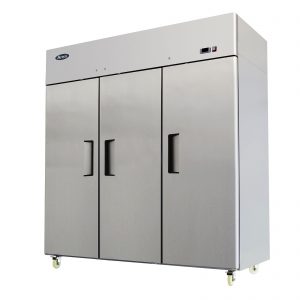What is the Most Energy Efficient Door? A Comprehensive Guide
Introduction
In order to make our homes more energy efficient, we frequently concentrate on insulation, windows, and appliances. The door is a significant component, nevertheless, that is frequently disregarded. Choosing an energy-efficient door can significantly influence your home’s overall comfort by lowering energy loss. This article will examine several door styles and will focus on the most energy-efficient ones.
Understanding Energy Efficiency in Doors
Similar to windows, doors can contribute significantly to energy loss in a house. Radiation, convection, and conduction are the three ways that heat is transferred. An energy-efficient door is made to reduce these types of heat transmission, which lowers energy use and improves insulation. A door’s energy efficiency is influenced by a number of elements, such as its construction, insulation, and materials.

Factors Affecting Energy Efficiency
- Materials: The type of materials used determines how energy-efficient a door is. For energy-efficient doors, insulated materials like fibreglass, steel, and wood composites are frequently employed. Compared to conventional solid wood doors, these materials provide higher thermal resistance.
- Insulation: The door’s structure has insulation, which improves its energy efficiency. Doors with insulating cores made of polyurethane foam or other materials can greatly lessen heat transmission and boost total insulation.
- Construction: Energy efficiency depends on the way the door frame is built and how well it seals. To avoid air leakage, look for doors with a tight seal, and check the frame’s insulation levels to reduce heat loss.
Types of Energy-Efficient Doors
On the market, there are numerous varieties of energy-efficient doors. Let’s examine the most popular choices:
1. Fiberglass Doors
For energy efficiency, fibreglass doors are a popular alternative. They have high insulating qualities because they are built of composite materials. Fibreglass doors are extremely durable and require little upkeep because they don’t warp, break, or decay. They may also be created to resemble wood in appearance, adding aesthetic appeal.
2. Steel Doors
Although steel doors are renowned for their durability and robustness, they also boast remarkable energy efficiency. They frequently have a foam core insulation, which offers good heat resistance. Steel doors are suitable for a variety of conditions since they are resistant to warping, swelling, and shrinking. They also provide improved security features.
3. Wood Composite Doors
Wood composite doors blend the natural beauty of wood with energy-saving advantages. These doors are constructed from a combination of wood fibres and resins, creating a robust and long-lasting final product. Compared to conventional solid wood doors, wood composite doors offer high insulation and are less likely to warp or decay.
4. Insulated Glass Doors
Consider insulated glass doors if you would prefer a door with a sizable glass surface. These doors have numerous glass panes between which is a layer of insulating gas. By serving as a barrier, the insulating gas lowers heat transfer and boosts energy effectiveness. For people who want to retain energy efficiency while obtaining natural light, insulated glass doors are a great option.

Energy-efficient doors have advantages
Benefits of Energy-Efficient Doors
- Reduced Energy Consumption: Energy-efficient doors reduce heat transfer, which lowers your home’s heating and cooling costs. As a result, energy use is decreased, and utility costs are decreased.
- Improved Comfort: Doors with low energy consumption improve indoor comfort. These doors aid in maintaining a constant temperature in your home by reducing draughts and heat gain or loss. This ensures that every room feels cosy and welcoming by removing cold or hot zones near doors.
- Noise Reduction: Additional insulation is frequently included with energy-efficient doors, which helps to lessen outside noise transmission. These doors can provide a calmer and more pleasant indoor environment, regardless of whether you live in a busy neighbourhood or close to a busy street.
- Environmental Benefits: An environmentally responsible choice is an energy-efficient door. You may help the general conservation of resources and lower glasshouse gas emissions linked to energy generation by minimising your energy consumption.
- Enhanced Durability: Energy-efficient doors are frequently constructed to endure a variety of weather conditions, making them more robust than conventional doors. Because they are less likely to warp, rot, or otherwise deteriorate over time, they will last longer and require fewer repairs.
Choosing the Right Energy-Efficient Door
The following elements should be taken into account when choosing an energy-efficient door for your house:
- Obtaining Energy Star certification: Look for doors that have the Energy Star designation, which verifies that they adhere to exacting standards for energy efficiency. Doors with the Energy Star certification have higher energy performance that has been independently tested and confirmed.
- R-Value: The thermal resistance of the door is gauged by its R-value. Better insulation is indicated by a greater R-value. Consider using doors with greater R-values in areas with extreme weather, but moderate R-values might be adequate in areas with gentler weather.
- Weatherstripping and Sealing : Make sure the weatherstripping and sealing components on the door are snug and secure. Energy efficiency is increased and air leakage is avoided with proper weatherstripping.
- Presentation and fashion: Energy-efficient doors come in a variety of styles, coatings, and patterns. Select a door that blends well with the architectural style of your house and your own sense of style.
- Installation by a qualified professional: Have your energy-efficient door professionally installed to get the most out of the energy efficiency advantages. A good fit, seal, and alignment are ensured by proper installation, which also eliminates any potential gaps that could jeopardise energy efficiency.
Conclusion
For homeowners hoping to increase their home’s comfort, energy effectiveness, and environmental impact, investing in an energy-efficient door is a wise decision. The most energy-efficient solutions include insulated glass doors, steel doors, wood composite doors, and fibreglass doors. You can choose a door that satisfies your requirements for energy efficiency while enhancing the aesthetics of your home by taking into account elements like materials, insulation, and construction. To get the best benefits, keep in mind to prioritise weatherstripping, Energy Star certification, and expert installation. By selecting an energy-efficient door for your home, you’ll benefit from lower energy costs, increased comfort, and long-term durability. For the best insulated doors see here.

Recent Comments